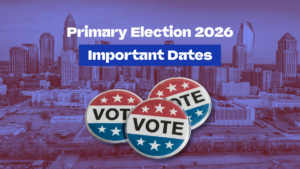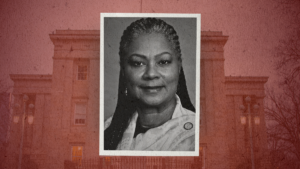When the “One Big Beautiful Bill Act” passed Congress, Marilyn Maddocks felt a mix of dread and disbelief. The 68-year-old Boone resident, who relies on food assistance to help make ends meet, told the News & Observer that this law is “the cruelest thing I’ve ever seen America do.”
Signed by President Donald Trump on July 4, the sweeping tax and spending package enacts deep cuts to social safety net programs, most notably Medicaid and the Supplemental Nutrition Assistance Program (SNAP). Advocates warn the consequences will be devastating for millions of vulnerable Americans, including the more than 650,000 North Carolinians whose Medicaid coverage could be jeopardized.
Every North Carolina Republican in Congress, except for Sen. Thom Tillis, voted for the bill. Tillis opposed it, warning his colleagues of the harm it could cause, but the measure still passed. In North Carolina alone, more than 3 million residents rely on Medicaid, and 1.4 million count on SNAP to help put food on the table. Maddocks is one of them.
Although she is exempt from the bill’s expanded work requirements due to her age, Maddocks fears how the sweeping changes will affect her already modest $25 monthly SNAP benefit. The law raises the work requirement age from 55 to 65, lowers the age of children whose caregivers qualify for exemptions, and tightens restrictions on states seeking exemptions in areas with high unemployment.
The cuts don’t stop there. Starting in 2028, North Carolina will have to pay 5% of SNAP benefits — about $140 million annually — plus penalties for payment errors that could cost an additional $548 million a year. The state’s share of administrative costs will also jump from 50% to 75%, adding another $68 million burden. Gov. Josh Stein has warned that these costs could force the state to cut benefits or make painful budget trade-offs, hurting children, the elderly, the disabled, and low-income working adults.
For Maddocks, who once earned a good living as a mechanical design engineer, the threat is personal. She lost her job during the Great Recession, struggled to find work, spent her savings, and eventually became homeless. A car accident left her with severe injuries, and disability benefits became her lifeline. SNAP helps her stretch her limited income to afford healthy food.
But the $25 she receives each month is already far from enough. When her benefits were briefly cut off this summer, she felt the impact immediately. She took a job at Goodwill despite chronic pain, just to keep afloat. “I’ve got to have a job, because I don’t trust what the government’s doing,” she said.
She’s angry at the lawmakers who voted for the cuts, noting they “know they’re taken care of for life,” Maddocks said, “and don’t have to worry about their next meal or next prescription. In this country, in one of the richest countries in the world, we still have people starving here, and now, people are going to be starving even more.”
She worries especially about the children and seniors who will bear the brunt of the changes. In North Carolina, one in eight people depend on SNAP, and two-thirds of those households have a child. One-third includes someone who is elderly or disabled.
For Maddocks, the situation feels like a betrayal by a wealthy nation that should be able to care for its most vulnerable.
She has a message for voters as the midterms approach: “I’m going to make it my mission to inform people what’s going to happen to them if they vote Republican”.
Read more from the News & Observer.





